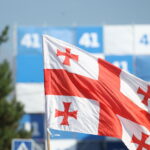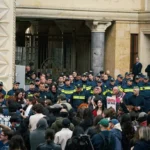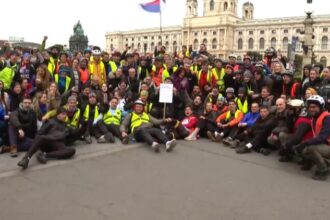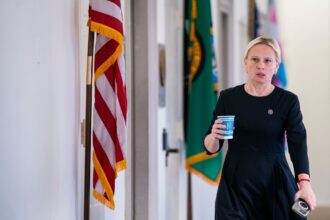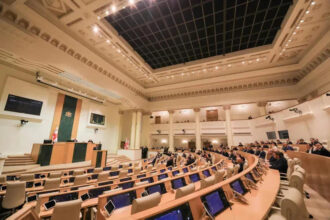**Georgia’s Government in Turmoil: Growing Internal Crisis and Regional Concerns**
The Georgian government is facing a growing internal crisis, with the opposition Lelo party leader Mamuka Khazaradze being forced to pay a hefty bail of GEL 50,000 (around USD 18,200) for refusing to appear before the Georgian Dream parliament’s temporary investigative commission. This move has been criticized as part of a wider campaign to silence opposition voices and suppress dissent.
In a video link address to the British Foreign Affairs Committee, Georgian President Salome Zurabishvili warned that Georgia was facing a crisis driven by pro-Russian authoritarianism, widespread repression, and systematic electoral manipulation allegedly orchestrated by Moscow. She also cautioned that Georgia could become a “grey zone” used for sanctions circumvention.
**Judges Sanctioned and Opposition Leaders Targeted**
The UK’s Foreign, Commonwealth, and Development Office has sanctioned two senior Georgian judges – Mikheil Chinchaladze and Levan Murusidze – under the Global Anti-Corruption Sanctions Regulations 2021. This move is seen as part of a broader effort to address corruption and hold those in power accountable.
Meanwhile, opposition leaders Mamuka Khazaradze and Badri Japaridze have been targeted by the Georgian Dream parliament’s temporary investigative commission, which has forced them to pay bail for refusing to appear before it. This has been met with criticism from human rights groups and international partners.
**International Concerns Grow**
The US State Department has expressed concern over Georgia’s government actions, calling them “anti-democratic” and criticizing the authorities for censoring and imprisoning opposition leaders. The European Commission has also weighed in, criticizing recent laws that risk stigmatizing civic activists and restricting fundamental freedoms.
The OSCE Office for Democratic Institutions and Human Rights (ODIHR) has voiced concern over the Georgian parliament‘s adoption of a Foreign Agents Registration Act, warning that it could severely restrict civil society activities. This move has been met with criticism from human rights groups and opposition leaders, who see it as an attempt to silence dissenting voices.
**Regional Concerns and Implications**
The situation in Georgia is also raising concerns about regional implications. The US Helsinki Commission has expressed concern over the Georgian government’s decision to award development rights for a strategic water port to a Chinese conglomerate that includes U.S.-sanctioned companies. This move could jeopardize Georgia’s democratic future and increase Chinese influence in the Black Sea region.
The situation in Georgia is complex, with multiple factors at play. As international partners continue to express concern over government actions, it remains to be seen how this will unfold and what implications it will have for regional stability and human rights protections.



